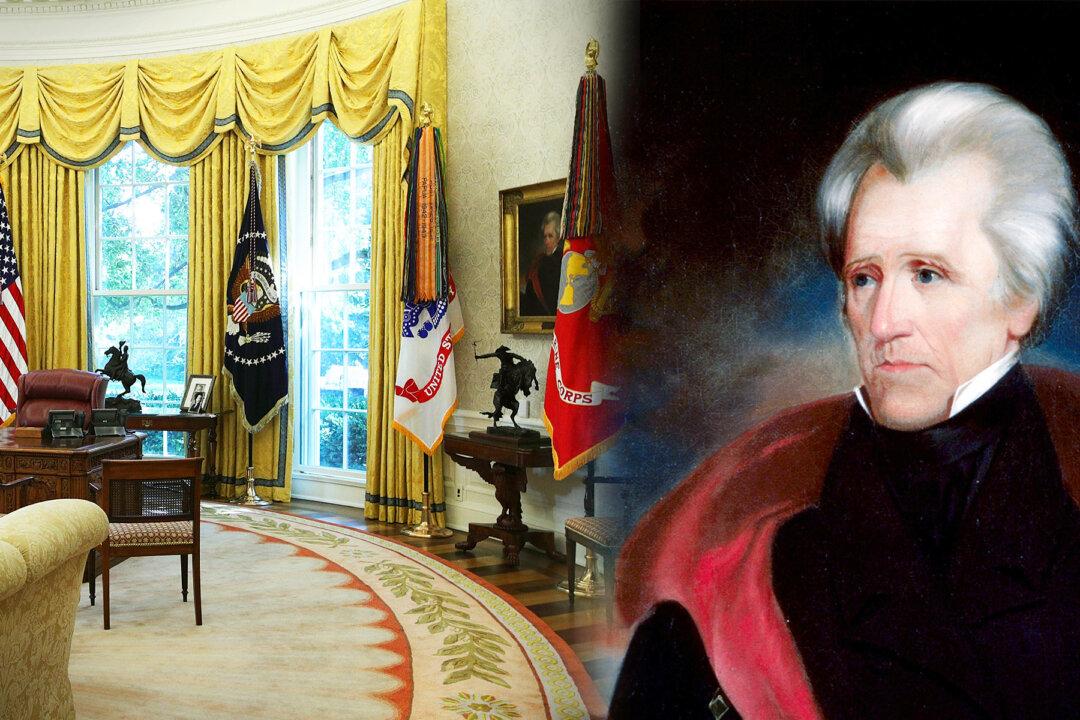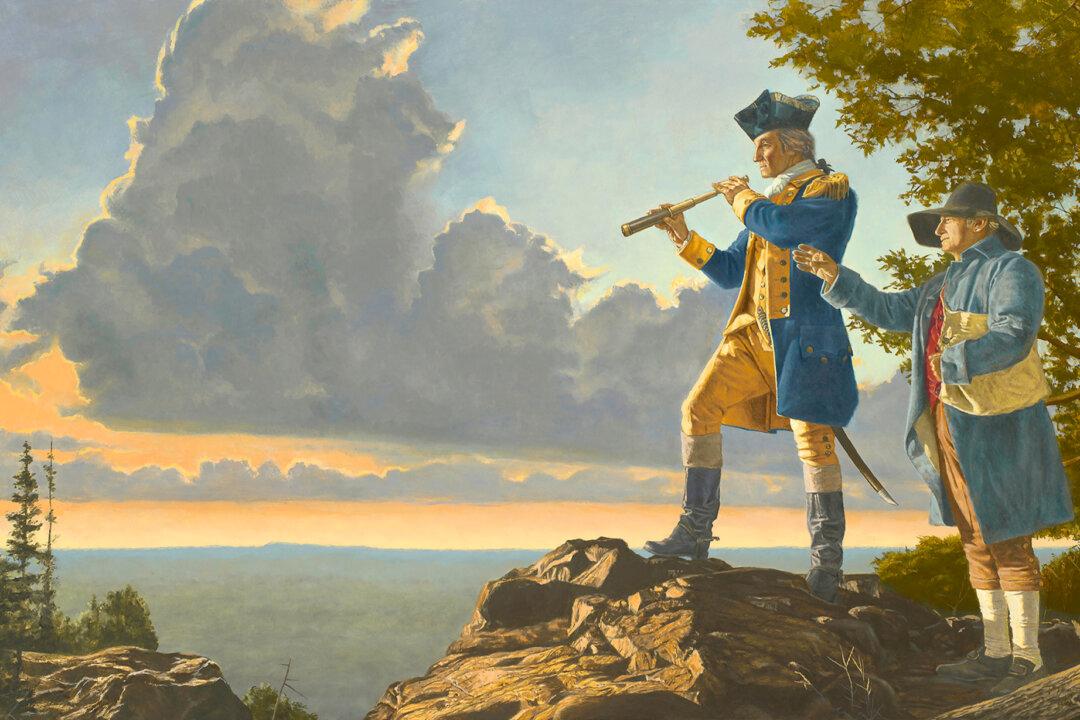Soon after his inauguration, newly elected President Trump made some notable redecorating decisions in the Oval Office. The red drapes of the previous administration went down; up went brilliant gold drapes; military, American, and Presidential flags were arranged in a half-circle behind the Resolute desk—and a painted portrait of the seventh President of the United States, Andrew Jackson, was hung prominently to one side.
As for the portrait of Jackson, it seems that President Trump holds a special place in his heart for the Democrat who served in office from 1829 to 1837. Pundits have often described Trump as “Jacksonian,” while Trump once called Jackson “an amazing figure in American history—very unique so many ways,” per The Hill.






